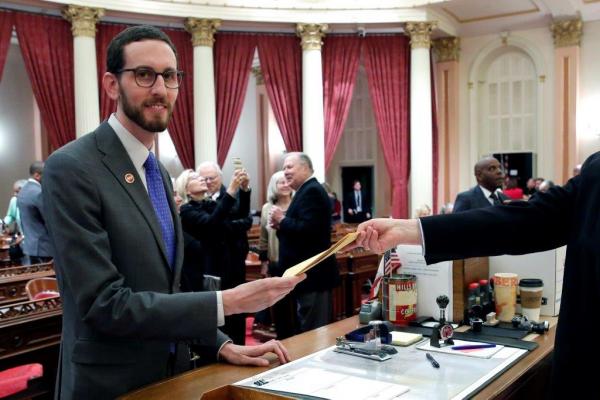California State Sen. Scott Wiener, D-San Francisco, has introduced SB 617, the Solar Access Act.
SB 617 implements automated solar permitting in local California jurisdictions with over 10,000 residents. This will allow for remote inspections and approvals of residential solar and solar+storage systems, which will greatly decrease approval times, cut permitting costs for local governments and homeowners, and help California meet its greenhouse gas emission reduction goals.
SB 617 is co-sponsored by SPUR, a San Francisco-based policy research organization, and Environment California. Assemblymember David Chiu (D-San Francisco) is a principal co-author of the bill, and Sen. Josh Becker (D-San Mateo) and Assemblymember Robert Rivas (D-Hollister) are co-authors.
“This bill builds on California’s great work to streamline solar permitting that has made the state a clean energy leader,” says Nick Josefowitz, chief of policy at SPUR. “This bill will make installing solar panels on your roof and battery storage in your garage a quick and straightforward process. This is especially important for all those Californians facing regular public safety power shutoffs, who are looking to continue to power their lights, internet and critical medical equipment without resorting to dirty diesel generators.”
While the cost of solar technology has decreased in recent years, the high costs associated with installation – including local permitting and inspection requirements – have remained prohibitive for many. Delays due to long permit and inspection wait times are also hurting solar implementation across the state. Automated permitting solves both of these issues; the Solar Access Act will allow California to implement a timely and comprehensive solution.
The National Renewable Energy Laboratory (NREL) has created a free-to-use program to support local governments with residential solar and solar+storage system permitting. SolarAPP+ provides a web-based portal that streamlines and automates permit reviews and can be easily implemented into existing local government permitting software. The Solar Access Act requires cities and counties with populations over 10,000 to provide an online, instant permitting process like SolarAPP+. It also authorizes the California Energy Commission to provide technical assistance and grant funding for implementation through repurposed New Solar Home Partnership Program funds.
NREL first introduced SolarAPP+ in late 2020 and has slowly expanded the program’s capabilities. Pleasant Hill is the first city in California to adopt SolarAPP+ and has already begun processing permits. San Jose also uses online solar permitting and has seen a 600% increase in approvals since upgrading in 2016.
Photo: Wiener introducing SB 35 on his first day in session





Sen. Scott Wiener and Northern California continue to make impacts on the alternative energy industry. This is definitely a move for the right reasons and I’m definitely curious if it will be approved.
The big thing I’ve noticed that entices people to purchase more solar is the federal tax credit as well as additional bonuses. Hopefully, more incentives will be added in the future for the alternative energy industry.